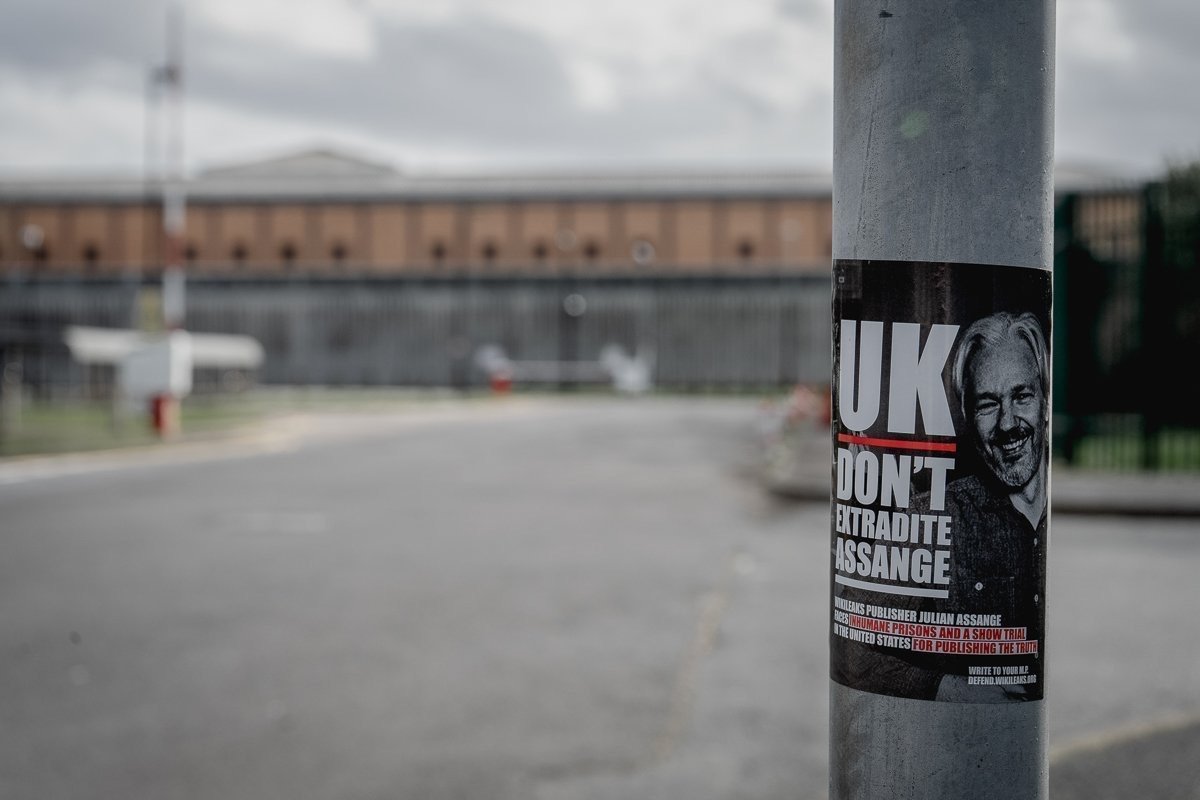Assange Court Report Day 1: Morning

Hundreds gathered outside a London court today to protest at the first day of the extradition hearing of Julian Assange, with their chants of “Free Assange,” fully audible inside the hearing room.
The United States Government is demanding that the Wikileaks founder be sent to Virginia to stand trial for conspiring to gather classified information, revealing the names of confidential informers and conspiring with former soldier Chelsea Manning to break a secret password.
As Assange sat impassively in the glass-fronted dock, James Lewis QC, representing the US government told the court that extradition was being sought for “conspiracy to steal and hack into a Department of Defence computer system,” adding that, “ This is a crime, and reporting is not an excuse for criminality.”
He continued by arguing that the release by Wikileaks of uncensored US diplomatic cables had put at-risk people who had provided US intelligence with information during military operations in Iraq and Afghanistan, and that revealing the locations of “sensitive US military sites,” could have hindered the “fight against terrorism.”
Lewis then told the court “ it is not for the US government to show there was any actual harm,” to confidential sources before also alleging that documents from Wikileaks were found at the home of the founder of Al-Qaeda, Osama Bin Laden when it was raided by American troops in 2011.
Lewis then told the presiding judge, District Judge Vanessa Baraitser, that he wanted to address what he described as the defence “hyperbole” that the WikiLeaks founder could be sentenced to up to 175 years in prison in the US
“Sentencing is a function of the trial court not the function of the charging authority. Indeed, the equivalent offence in the UK would carry the equivalent sentence,” he added stating that the average jail term for similar offences in the US was between 40 and 60 months.
He also argued that the court had no jurisdiction to even consider the “abuse of process,” submissions that we expect to be made by Assange’s defence team later in the case. Lewis also told the court that despite the WikiLeaks founder not being a US citizen, he can be prosecuted under American security laws for “aiding and abetting” a US citizen in doing so, in this case, “conspiring,” with former US intelligence officer Chelsea Manning.
Asked by the judge if they accepted this, Edward Fitzgerald QC for the Defence rose to say the extradition offence is not valid as journalistic activity is protected under article 10 of the European Human Rights Act. The prosecution pointed on to the UK 1989 Official Secrets Act, which was passed after a civil servant, Clive Ponting, was acquitted of an offence after arguing the public had a right to know about the sinking of an Argentinian warship, the General Belgrano in 1981. The new act removed any “public interest” defence in revealing security or intelligence matters.
The QC said that that as there is no public interest defence in the Official Secrets Act if a newspaper published official secrets they are guilty of an offence no matter what the purpose. The European Human Rights Act “does not apply,” he said, adding “Otherwise could just publish what you wanted.”
The US government is expected to conclude their opening remarks later today, with the defence then presenting its opening statement.
The case continues